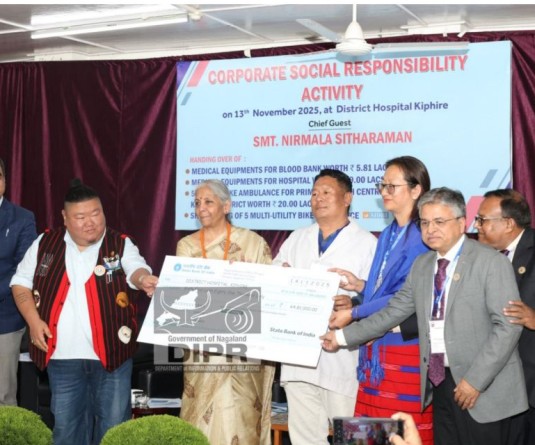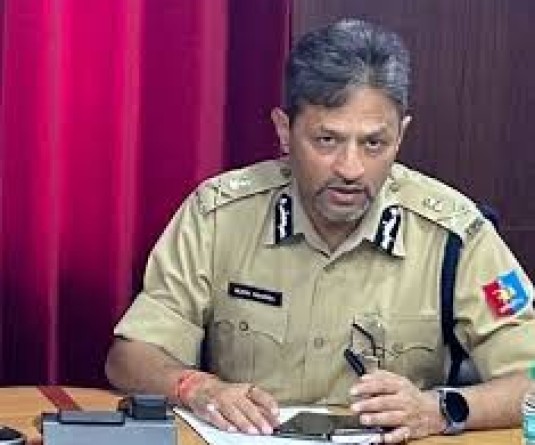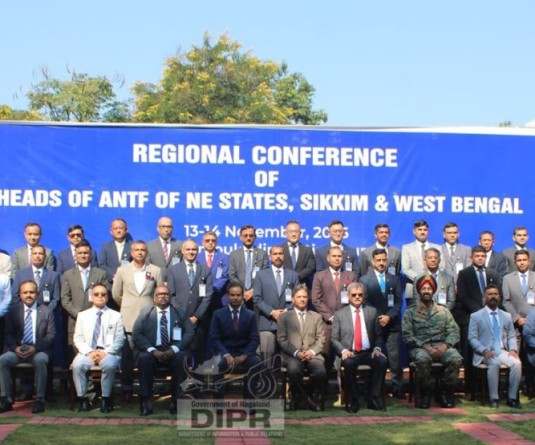
Morung Express News
Dimapur | February 23
Government service is held in high esteem in Naga society. No wonder, then, that bureaucrats are celebrated leaders. A fallout of this has been the deluge of bureaucrats entering political decision making—every election, several bureaucrats look to contest elections and even win seats to their respective constituencies. 2018 is no different—while some retired bureaucrats are in the fray, some bureaucrats have resigned from their departmental positions to run for political office.
Why do bureaucrats contest elections? Is this a healthy trend? The Morung Express explores.
Knowing the system
“Most bureaucrats are leaders in their area. There is public demand for them to lead their communities,” notes Moa Aier, Additional Chief Electoral Officer, Nagaland. Besides, “given their experience, they also have inclination to become political leaders.”
Aier refers to the fact that bureaucrats know how ‘the system’ works giving them an edge over common people on how to design policies that can be implemented.
Huthuka Sumi, a businessperson based in Dimapur, observes, “As former parts of the system, bureaucrats understand how things work and are in a position to bring change.”
But there is a glitch that afflicts this theoretical ground for successful policy making. Bureaucrats tend to be less inclined towards changing a system that they know they can profit from—a system that has laid the basis for corruption in Naga society.
Dr. Zuchamo Yanthan, President of the Naga Scholars’ Association, explains this as the “triadic structure of politicians, bureaucrats and contractors” that is at the heart of the Indian political system as well as the “soul of corruption” in Nagaland State, which has a “history of being controlled by money power.”
“Bureaucrats have good understanding of government functions and so would be ideal politicians if they could overcome their love for money,” says Dr. Sedevi Angami, an informed citizen of Nagaland. In his analysis, “understanding the system” also leads to “arrogance of knowing more than others.”
Early retirement
Loaded with some of the above, many bureaucrats have taken voluntary retirement to contest polls, whether they have the political skill or not. The policy on retirement makes the transition smooth.
Retired officers joining active politics, says Dr. Zuchamo, “could be the direct outcome of state's retirement age policy i.e. 60 years early or 30 years in service.”
“This is possibly the reason why Nagaland state is witnessing many capable officers in their respective fields retiring below 60 years and joining active politics simply because they have stocked enough money to contest. This is one policy which the state government must address wisely and see that the criteria should be limited only to age and not the length of service,” he notes.
Early retirement of bureaucrats may work but makes a big dent on communities that do not have enough bureaucrats in the system to begin with.
“It is a huge loss for us when bureaucrats resign and run for elections,” notes Dr. Esther Konyak, Assistant Professor at the Wangkhao Government College in Mon, referring to communities from Eastern Nagaland who do not have a good representation of officers in the State bureaucracy in the first place. And it can give good results “only if they hold the office with all honesty.” This, however, gains an added level of complexity since “in our society, power is equated with wealth.”
With “money power” not “individual capacity” setting the bar for political leadership, “intellectual community who are very capable of bringing total transformation in the state are not able to take up active leadership role in the state,” explains Dr. Zuchamo.
Bar the bureaucrats?
A vicious game unfurls, according to educator and theologian Dr. Eyingbeni Humtsoe Nienu. “In all probability they have planned to contest while in office and spend the years siphoning off enough public resources in preparation for contesting in election. During election process they splurge the same to win the seat. Once in assembly, they consider it natural to try to recoup the amount spent and more (which was not even theirs in the first place). The cycle of corruption continues, and the common people reel under pathetic conditions of life.”
Over the past couple of weeks, several writers who have contributed to the ‘Public Discourse’ section of this newspaper have expressed similar views.
“The relevant authority must have a policy forbidding former bureaucrats from contesting elections,” suggests Dr. Eyingbeni.
While Huthuka Sumi also feels that elections in Nagaland are run on money and muscle power that inevitably gives former bureaucrats an edge over anyone else, he thinks forbidding all bureaucrats may be too harsh as it will deny those the opportunity to contest who may have the relevant skills and are upright. Though this breed has not come to power in Nagaland yet, he concurs, someone may rise as a “catalyst for change.”
Ways to go
But even catalysts cannot make change in a day or through a single stroke. Change needs to be at the individual level of each bureaucrat as well as at the systemic level.
“An ideal politician would be a humble bureaucrat who is honest and secure with no need to prove himself. There is always something new to learn from people and blessed is one who listens carefully to the least,” notes Dr. Sedevi of the individual qualities to inculcate.
On the other hand, Dr. Zuchamo extrapolates on the systemic aspect. “Indian political system is a patronage democracy, where the clients(voters) depend on patrons. So, voters support according to personal benefits they get from the candidate.If corruption must be routed out, the existing system has to be changed or make the citizens financially independent, so they don't become dependent on these bureaucrats, professionals, politicians or wealthy people. This is the only way clean election can happen in the state.”






